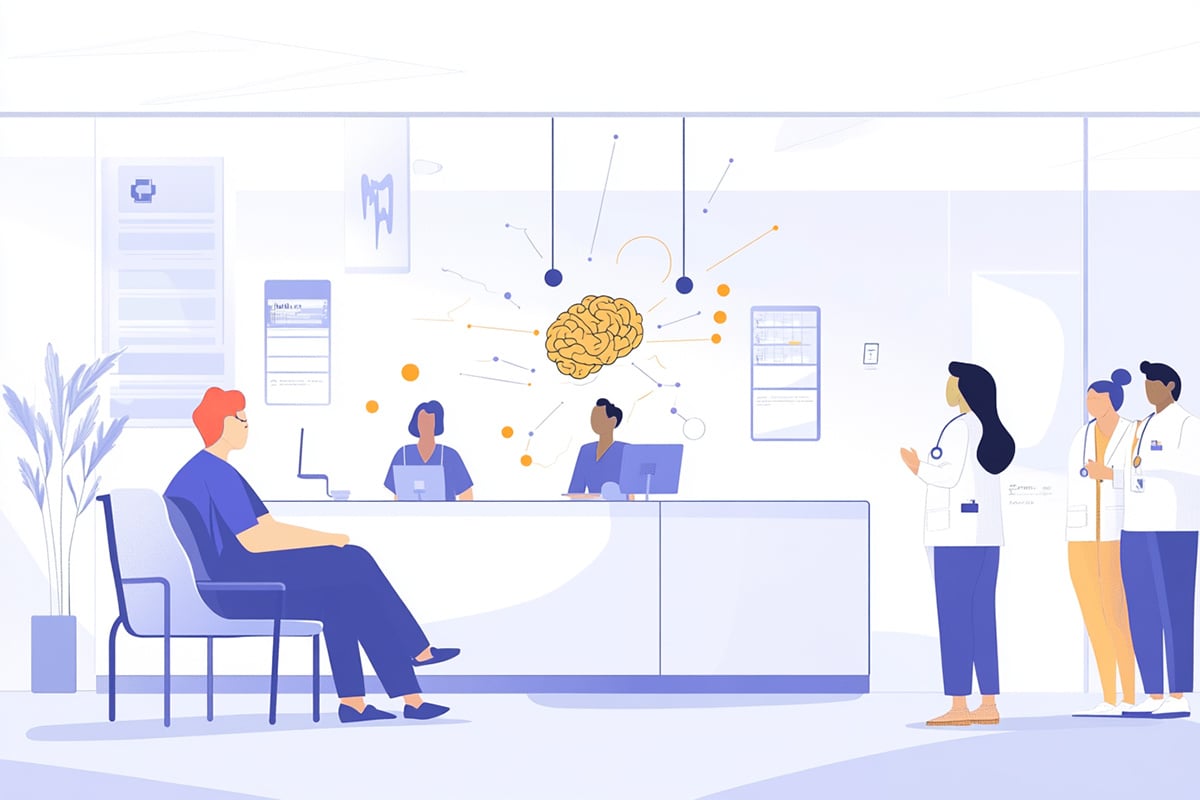
Why Primary Care Phone Systems Need to Change in 2025
If you’ve spent any time in tech circles recently, you’ve likely heard the buzz around agentic AI. Unlike traditional AI systems that...

If you’ve spent any time in tech circles recently, you’ve likely heard the buzz around agentic AI. Unlike traditional AI systems that require explicit instructions for every task, agentic AI acts as an autonomous agent: performing tasks, making decisions, and adapting dynamically to meet specific goals. It’s being hailed as the next frontier in AI evolution, with Forbes and the MIT Technology Review marking 2025 as the year of agentic AI.
Nowhere is this more evident than in healthcare, where agentic AI is making significant inroads. And at the forefront of this transformation is QuantumLoopAi, applying agentic AI to address some of the most persistent challenges in GP surgeries.
Agentic AI is a step beyond its predecessors, operating as a proactive, decision-making system that works towards defined goals independently. Its capabilities include:
In healthcare, where unpredictability and complexity are the norm, these capabilities are particularly valuable.
Agentic AI is already making waves in other areas of healthcare globally. Here are some standout examples, demonstrating its potential and current applications:
In the United States, AI-driven systems are enhancing emergency room efficiency by supporting patient triage. For example, platforms like KATE provide real-time, clinically accurate triage decision support to emergency department nurses, helping prioritise patients based on urgency (Mednition).
This innovation ensures timely care for patients who need it most, streamlining workflows and reducing the burden on clinical staff. While not yet widely adopted in the UK, such systems demonstrate how agentic AI can manage high-stakes, dynamic environments.
Globally, AI is transforming chronic disease management through remote patient monitoring (RPM). Systems integrated with wearables and sensors continuously collect and analyse data, allowing early intervention in conditions like diabetes, hypertension, and cardiovascular diseases (ArXiv).
This proactive approach is gaining traction in the US and other countries, though the NHS is still in the early stages of integrating similar AI capabilities into routine care.
In the US, hospitals are deploying AI to optimise supply chain management, including resource allocation and inventory tracking. For example, emergency departments use AI-powered systems to prioritise cases based on real-time patient data, improving resource utilisation and reducing wait times (AI Plus Info).
While the UK healthcare system faces different operational challenges, the lessons from these implementations are clear: agentic AI has the potential to make healthcare systems more efficient and responsive.

At the heart of QuantumLoopAi’s approach is EMMA (Enhanced Medical Management Assistant), a flagship agentic AI solution tailored to GP surgeries. EMMA is not just a chatbot or a glorified phone tree; it’s a multi-agent system designed to handle the complexities of primary care with intelligence and autonomy.
EMMA operates through a multi-agent structure, with each agent focused on a specific aspect of call handling and care management:
The result is a streamlined system that enhances patient access, reduces receptionist workloads, and ensures no caller is left waiting.
Agentic AI like EMMA represents a significant leap forward compared to existing tools in GP surgeries. Many current solutions, such as basic call-handling platforms, rely on rigid scripts and simple question-and-answer frameworks. While these are helpful, they lack the adaptability and human-like conversational ability of agentic AI.
Simple things like being able to interrupt EMMA, ask for clarification or having EMMA identify and ask for any missing information relevant to booking an appointment are key to a smooth telephone experience.
QuantumLoopAi’s EMMA sets itself apart by combining autonomy with intelligence, providing a personalised, seamless experience for patients while streamlining workflows for staff.

The advantages of agentic AI extend beyond convenience:
QuantumLoopAi is not just solving today’s problems; it’s preparing GP surgeries for the challenges of tomorrow.
By automating routine tasks, QuantumLoopAi allows receptionists, admin teams, and clinicians to focus on activities that truly matter. This not only improves morale but also ensures surgeries are better equipped to handle increasing patient demand.
The full value of NHS’s Capacity and Access Payments (CAP) are notoriously difficult to access, with 30% tied to demonstrable improvements in patient access. QuantumLoopAi provides the data and metrics needed to secure this funding, ensuring surgeries can invest in further innovations.
Agentic AI is no longer a theoretical concept; it’s a practical tool that’s transforming healthcare globally. From emergency rooms to chronic disease management, its impact is being felt in every corner of the sector.
QuantumLoopAi, with its groundbreaking EMMA system, is leading the way in GP surgeries, improving access, reducing workloads, and delivering better outcomes for patients and staff alike.
For GP practices and healthcare leaders, the message is clear: embracing agentic AI is no longer optional; it’s essential. Discover how QuantumLoopAi can transform your operations. Schedule a demo today and join the future of primary care.
Related content


